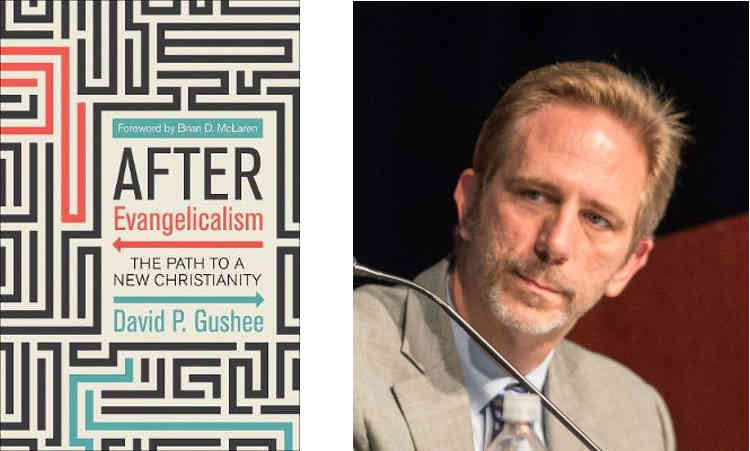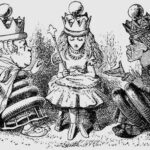Christianity has always been adaptable. It has been changing and adapting right from the start. Not all of these changes have been good, but some of them have been helpful and apparently inspired by the Holy Spirit.
In the early days we saw the growth of doctrine and the gradual acceptance of the books that comprised the scriptures. I don’t feel all those decisions were good, but some decisions were necessary.
In later years we have seen various revivals and movements. The Reformation and the appearance of the Anabaptists. The Wesleyan and Azusa St revivals. The modern missionary movement. The charismatic renewal, the Jesus revolution and the christian justice movements.
Are we seeing today another major renewal and reformation movement?
It’s been coming for a while
For decades now there have been many signs that change is needed.
- Too many parts of the church have become bureaucratic, impersonal or clergy-controlled. It often doesn’t look at all like a movement started by Jesus of Nazareth.
- Presidential leadership models have led to various forms of sexual and power abuses and kept too many “lay” christians passive.
- Science and academic study of the Bible have undermined older approaches to faith for many younger people. Many christians just can’t believe what they once did.
- Evangelical christianity seems to be particularly compromised to many christians because of its espousal of extreme right wing political values seen as quite contrary to Jesus.
For these and other reasons, christians deconstructing their faith is a growing phenomenon. I began this process 5 decades ago, and so was able to negotiate change slowly and with minimal threats to my trust in Jesus. But today it is happening faster and with more catastrophic outcomes for many people’s faith.
So how can ordinary christians reconstruct after they have been through deconstruction? How should christian leaders approach this issue?
I have a whole section on this website examining that question. And now comes a book from a former evangelical scholar that further lights up a way forward.
The man and the book
David Gushee is a university Professor of Christian Ethics who has written more than 20 books charting his journey to a faith different to both the Catholic teachings of his childhood and the evangelical faith of his youth.
His latest book, After Evangelicalism, sets out “the path to a new christianity”.
What you get for your money
The book begins with a foreword by Brian McLaren, which gives it credibility with the progressive christians, though I don’t think Gushee is anywhere as “liberal” in his theology as McLaren.
(I say that not as a criticism – I have read many of Brian McLaren’s books and heard him speak, and I appreciate his perspective – but to give you an idea of where Gushee sits in the theological spectrum.)
A detailed introduction follows, in which Gushee outlines his own journey out of evangelicalism and discusses the phenomenon of evangelicals re-thinking their faith.
The main chapters of the book break into three parts:
Part 1. Authority
- Major problems with US evangelicalism, especially its political conservatism and a return to a more fundamentalist, dogmatic and anti-intellectual faith.
- The Bible: the doctrine of inerrancy, the reality of how much we all interpret it, and other ways of reading it.
- Hearing God’s voice beyond scripture, and interpreting scripture in that light.
Part 2. Theology & doctrine
- Understanding the different pictures of God in the Old Testament.
- The many ways Jesus is re-interpreted to fit our own viewpoints, and how we can get back to the teachings of the Jesus who actually lived.
- Ways forwards for the church, that will unable it/us to be post evangelical and less parochial.
Part 3. Ethics
You’d expect a professor of ethics to have some useful things to say here, and I wasn’t disappointed. He addresses three ethical issues – sex & gender, politics, and racism & white supremacy – and gives us thoughtful approaches to these three important issues.
Assessment
I didn’t agree with everything in this book and feel that we can say more than he says on some issues.
For example, I felt he probably didn’t go quite far enough in his reconstruction of a christian approach to:
- Scripture: there are some more fundamental difficulties with the evangelical view of scripture than he discusses.
- Jesus: here I think choosing James Dunn as a guide gives too much ground to scepticism – I think scholars such as NT Wright, Richard Bauckham, Larry Hurtado and Craig Evans could be listened to here.
- The church: I think he could move further from the institutional church and formal Sunday services, towards simple church and Pete Ward’s “liquid church”.
- Ethics: while I had a lot of agreement with his ethical stances, I need to think more about a few details of his proposals on gender and sexuality.
And the book is quite US-focused, particularly in his chapters on the definitions of evangelicalism, on politics and on racism. Evangelicalism in Australia, for example, is not as harsh and not as far from Jesus as the US evangelical church can appear to be.
But these are minor issues
Those caveats aside, I was very encouraged by this book. The author has researched well and writes from a position of knowledge and long consideration. His ethics chapters contained many valuable insights on race and sexuality and some challenging ideas on how we may need to re-think some of our current approaches to these issues.
I was particularly impressed with the detail of his chapter on race and white supremacy. We all have much to learn and some things need to change.
Although he has reconstructed, his faith remains centred in Jesus and is recognisable as a continuation of historic christianity. He sets out clear reasons why change is needed in some approaches and clear justifications for the changes he suggests. So his ideas shouldn’t really scare anybody who accepts his critical picture of the modern western church.
I think this book is like a primer – first steps for those who recognise change is needed but who don’t feel the need to totally pull apart their old faith.
Where is God in all this?
My judgment is that this book is part of a reconstruction movement that is of God. It is heading in a generally good direction.
Of course, just like the early church, enthusiasm and human error will lead to mistakes and excesses. But there are mistakes and excesses already in the church. So the possible problems aren’t a reason not to join, if we think that’s where God is leading. We can be part of keeping things on course – as the saying goes “it is easier to restrain a fanatic than revive a corpse!”
So I encourage you to read this book, or any other like it, to give us all a stronger basis moving forwards into whatever it is God has for us. I think it is time for us to accompany God in making all things new.




